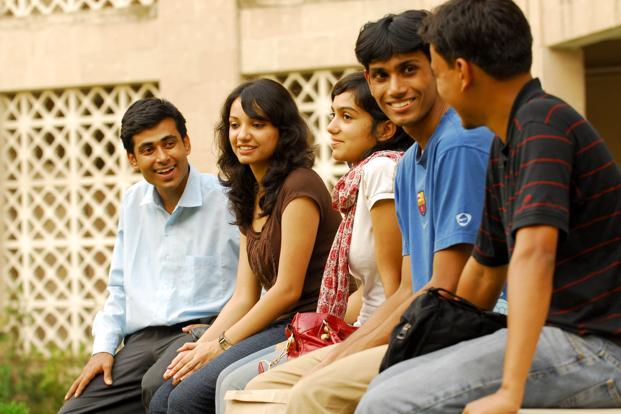50% of Indian population is below the age of 25 years and in the 2014 general elections, there were 150 million new voters. By 2020 almost 64% of the population will have an average age of 29 years. What do these statistics imply? Simply this, that India is much younger now. Young Indians are in majority and the future belongs to the young Turks. But are these young Indians ready to take on the mantle and guide our nation to its deserved glory?
While there is no doubt that India will attain the position and status it deserves due to the youngsters’ competency, there is a growing concern about the attitude of today’s youth. We need to be clear that the Gen X or Gen Y in India isn’t just a mid-20s MacBook geek and the average Indian youth, isn’t just a 20 something rural farmer or worker sweating away for 12 hours in 40 degrees temperature. However the fundamental issues plaguing today’s young Indian are mostly common to both categories.
The youth today wants too much independence and nothing to do with values. While the Westerners have started adopting Indian culture more, the youth of India is busy abusing their own culture. Freedom to do anything as one pleases is leading to some very ugly desecration of value system of our country. Freedom to have sex as many times with as many people is becoming “cool” for them– for it happens in other countries! Freedom to stay away from family before or after marriage and let old parents stay alone or in an old age home is becoming “practical” as per their sensibilities. Not just this, they seem to be losing out on humanitarian values; to them, the concepts of being philanthropic and showing good judgement seem “lame”. Living in the moment is a great thing, but living only for the moment is not.
Young India is an impatient lot. This lot of Indians is always looking forward to next one – be it a job, dating, fashion trend or even a movie. Young India feels emotional but just tries to fake that emotion for personal gain. They have short attention spans and know that the next scandal will be here before they have moved on from the previous one. If permanency equals stability, then they don’t need this stability because it will lead to their stagnation. From online dating, to flexible work hours, to hair-styles – all are chosen with a possibility of ending them soon and moving on.
Not only an impatient lot, they can also be hypocritical; they don’t want to get caught. They’ll crib about corruption in the Government, but will happily pass a currency note to a cop to let them go if fined for a traffic rule violation. They want the change but will not be part of the change.
Young India’s priorities are misplaced. They want to be elite – make money not happiness. They want fast money – really fast. Any topic which does not involve making more money is beyond rationality to them, unless it’s over a beer, a movie or a “bae”. Apparently, to them money provides happiness and financial strength represents success, intelligence, forwardness, rationality, adaptability, and everything else under the sun. Young India believes in success with short cut methods fulfilling their dreams by any methods even if they are unethical ones. It appears that they feel that world is a market place and not a big family. So everything is commercial and needs to be exploited.
Young people in India are religiously and politically divided. A legacy of previous generations they are continuing to harm the socio – politico fabric of the country by participating in meaningless and counter-productive activities like protests over reservations on caste basis. They excel in leveraging only fundamental rights without any thoughts on fundamental duties.
It would be appropriate therefore to mention that young Indians today are forging ahead towards personal and financial growth but lacking in attitude towards a sustainable all round and all-encompassing one. The time has come for them to introspect and actually measure out their actions. They are crucial to India’s development; their actions can make or mar the society. With such power, comes great responsibility, and this responsibility need be exercised tactfully.
































